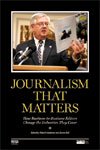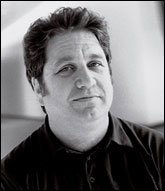 Courtney E. Howard,
Courtney E. Howard, a member of Phi Beta Kappa, graduated
cum laude from the University of New Hampshire with a degree in English with a writing concentration. She has been writing and editing technology articles for business publications for more than a decade.
After college, she began her career as an editor at Audio Amateur Inc., where she worked on several high-tech industry newsletters, consumer magazines, and books. In 1998, she joined PennWell's Advanced Technology Division working on
Electronic Publishing magazine.
Today, in the role of managing editor, Courtney composes articles on various publishing, printing, and design topics, as well as oversees product coverage in each monthly issue, manages the magazine's web site (
www.electronic-publishing.com), and constructs its e-newsletters.
Matt Kelly has been managing editor of
Compliance Week since January 2006. Prior to that, he was a freelancer for
Compliance Week and
Time, the
Boston Business Journal, eWeek, and numerous other publications since 2001. Earlier in his career he was associate editor at
Mass High Tech, and a reporter at the Quincy
Patriot-Ledger and at
Foster's Daily Democrat in Dover, N.H.
In his spare time, Matt also likes to travel the world and methodically cross off items on
National Geographic's list of 50 places to see before you die.
 Julia King,
Julia King,executive editor/events and national correspondent for
Computerworld, is an award-winning business and technology journalist with more than 20 years’ experience covering a wide range of beats, from technology management and labor issues to electronic commerce, IT return on investment issues and offshore outsourcing.
Julia was the founding executive editor of the award-winning
Computerworld
ROI magazine and spearheaded
Computerworld's coverage of information economics. Prior to joining
Computerworld in 1994, Ms. King worked for nearly a decade as a reporter and writer for national business and technology magazines. She also worked for five years as a daily newspaper reporter and later, as a features writer and editor.
Her IT reporting has earned her several awards from ASBPE, and she is a frequent presenter and panel moderator at industry conferences. She is editor of a recent book titled
Executives’ Guide To The Wireless Workforce, which was published by John Wiley & Sons in July 2003.
Julia holds a master's degree in international relations and a bachelor's degree in political science, both from University of Pittsburgh.
 Jeffrey Klineman,
Jeffrey Klineman, editor,
Beverage Spectrum, is an award-winning journalist who has written for numerous publications, including
Boston Magazine, Self, George, the
Chronicle of Philanthropy, and the
Boston Globe Sunday Magazine. He is a contributing writer to
Commonwealth and
Razor magazines and worked previously as a courts and general assignment reporter for the
Lawrence Eagle-Tribune. A graduate of Yale University and Columbia University’s Graduate School of Journalism, Jeffrey is also a partner in the Internet media company
Snoutsinyourtown.com.
Jeffrey joined the chapter board because “I’m interested in working with a community of journalists facing similar challenges to the ones I face every day.”
 Sue Pelletier, MeetingsNet
Sue Pelletier, MeetingsNet web editor,
mad blogger, and executive editor of
Medical Meetings magazine, spent her first 10 journalistic years mired in sewage sludge and garbage as a writer and editor of national and international trade magazines for the environmental industry. “I can't tell you how much I appreciate and enjoy covering the meetings industry for The Meetings Group,” she says.
Since she started covering the meetings industry, Sue has developed a huge interest in adult education in all its many facets — an interest that made joining ASBPE’s board a natural fit for her. She says she has “a fascination with how all the elements come together to create a learning environment that actually gives people the tools they need to do their jobs better once they get home.”
As for other interests, Sue says, “In those rare times I'm not chained to my keyboard, I like to hike the woods around my home in rural Massachusetts with my husband and my surrogate children, two Australian Shepherd dogs.”
Note: This post was updated on Oct. 17, 2006, to include the full story about the new chapter officers; originally it included a shortened version and referred readers to the full article on the old ASBPE Boston web page. This blog has replaced the old Boston web page.

 Courtney E. Howard, a member of Phi Beta Kappa, graduated cum laude from the University of New Hampshire with a degree in English with a writing concentration. She has been writing and editing technology articles for business publications for more than a decade.
Courtney E. Howard, a member of Phi Beta Kappa, graduated cum laude from the University of New Hampshire with a degree in English with a writing concentration. She has been writing and editing technology articles for business publications for more than a decade. Julia King,
Julia King, Jeffrey Klineman, editor,
Jeffrey Klineman, editor,  Sue Pelletier,
Sue Pelletier, 
